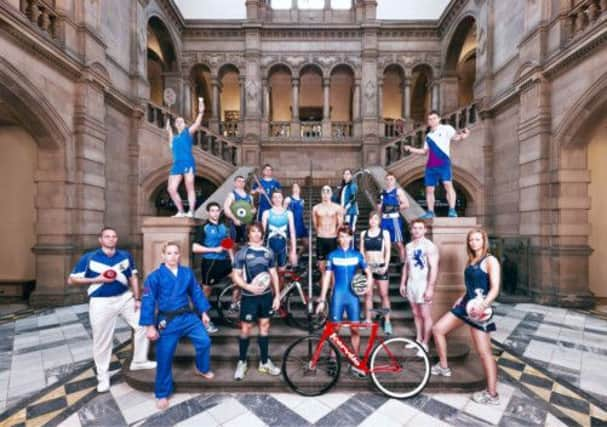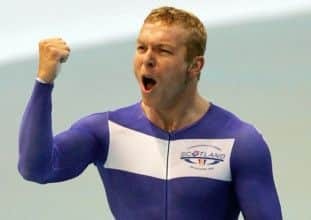Glasgow 2014 Commonwealth Games: One year to go


Chief among the challenges for the organisers is to convince us that something so overdue is not necessarily outdated, but they also have to persuade Glasgow that this is a sporting oddity worth buying into. Celtic Park will be full for the opening ceremony but how about the lawn bowls at Kelvingrove Park or the weightlifting in the SECC?
The Commonwealth Games is not the Olympic Games, it will be important to stress. But Glasgow is not the first city to have to emphasise this and, conveniently, it has good templates to refer to. The bar for multiple-sports events in the UK has been set high, and not just by last year’s sublime Olympic Games in London.
Advertisement
Hide AdAdvertisement
Hide AdIt was raised by Manchester, which staged an excellent Commonwealth Games in 2002 that consigned to rest the ghosts of Edinburgh 1986, when only Robert Maxwell’s millions averted an embarrassing cancellation.


The 2006 instalment in Melbourne was also warmly received to the point that nobody was talking about the dark origins of the Commonwealth Games when Scotland’s swimmers were striking gold with every stroke. Image problems have a funny habit of evaporating in the face of success.
So if the Commonwealth Games is not the Olympics, what is it?
Stripping back the politics, both the historic politics that led to the conception of the original British Empire Games and the modern politics that will try to hijack any meritorious performance by a Scots athlete next summer, it is a congregation of athletes from many countries of varying sizes. They all vie for the right to receive medals and see a flag raised to the sound of a national anthem.
You may be forgiven for thinking that this sounds rather like the Olympics. But it is important that Glasgow presents the Commonwealth for what it is: a gathering of very good athletes but not a summit to identify who is the very best.
Glasgow 2014’s best chance of being credible, meaningful, memorable and a financial success is surely to be honest. There are already persuasive signs that the city’s people will embrace the stranger at the door.
The volunteer uptake has been incredible, with 50,811 applicants outnumbering the combined aggregates of Manchester and Melbourne.
The tickets that start to go on sale on 19 August will be reasonably priced, with two-thirds of them set at under £25.
Advertisement
Hide AdAdvertisement
Hide AdFinally, for evidence that Glasgow will engage with the Games, people are already coming. The footfall at the new Sir Chris Hoy Velodrome has surpassed all expectations and the refurbished Tollcross pool has been subject to a stampede, with 40,000 admissions in the first month. There is no risk of this great gala being built on a distant hill and then left there to rust.
That said, sport in Glasgow has never known an interruption to normality like it, and there will be elements that resist its charms, deride them or simply dismiss them without a thought. Nobody in their right mind would expect a city with an ancient, near-umbilical attachment to football to make a mass departure to squash and table tennis. So far, though, the busy organisers in the Merchant City appear to be operating at the right pitch.
International analysts might wonder why selling a million tickets is a burdensome expectation in a city like Glasgow, where ten weeks of Saturdays and Sundays with the Old Firm playing at home would create roughly the same number of turnstile twists. But it won’t be easy to put bums on seats for something that does not naturally promote itself.
Glasgow should not make the mistake of pretending that the Commonwealth Games can be hyped like an Old Firm derby. It would be dangerous, similarly, to market it as a mini-Olympics, even though Usain Bolt and Mo Farah might be involved. There should be no need for that, because the product has grown big and credible enough to be sold on its own foundations.
Perhaps the truth about the Commonwealth Games is that it can be enjoyed from afar, but to love it you have to be there. Without the prestige of an Olympic Games, atmosphere is king.
Athletes rave about it, and the Tour de France cyclist David Millar wrote adoringly of the Commonwealth Games in last weekend’s Scotland On Sunday.
A man who competes in a cold professional environment, he referred to his trip to Delhi in 2010 as one of the highlights of his life. Being part of Team Scotland felt like ‘a goodwill mission’, and Millar declared that he intended to make Glasgow one of his last rides.
Another person worth asking if this is a party worth attending is Olympic, Commonwealth and world champion Sir Chris Hoy, who will be involved in today’s publicity push on Buchanan Street. The greatest British Olympian has name-checked his Manchester time-trial gold as one of the most important and satisfying wins of his career.
Advertisement
Hide AdAdvertisement
Hide AdHoy has been a bulwark of a brand – Team Scotland – that has become synonymous with success over the past three Games, even though our finest results have been in the pool. From David Carry to Hannah Miley, swimmers beamed out from the podium and we beamed back at them, even if these medals did not confer membership of a global elite. Commonwealth Games victories will never glitter quite like Olympic titles, but there will be some events next summer where the field is as strong as it would be at an Olympic or World Championship final.
In the velodrome, the challenge facing Ross Edgar and the other Scots cyclists in the shape of English and Welsh might is immense, with an Antipodean threat to consider too.
Elsewhere, the challenge will be less daunting. Athletics is a mass-participation sport and the Olympic stadium is often the hardest place to win Olympic gold, but without Russia, the USA, China and most of Europe, podium opportunities will be forthcoming for athletes accustomed to going out in the heats.
Scots such as Lee McConnell and Chris Baillie have prospered at this level when greater glories have proved off limits, and Hampden will generate a raucous circle of support for the likes of Lynsey Sharp and Eilidh Child next summer.
The success of London 2012 was founded on creative but robust organisation and inspirational performance by home athletes. Without either, Glasgow 2014 will disappoint but with 365 days to go, there are few reasons to be pessimistic. Even the retirement of Hoy has not diverted team officials from their conviction that the record Scottish haul of 33 from Edinburgh ’86 will be surpassed.
More than the athletes themselves, the people under the most pressure are the organisers and the high-performance gurus who have medals in their hands.
Smoky old Glasgow used to be a city that the world departed in a hurry. Visitors chugged off in the 1800s with sugar, textiles and tobacco, and later with new ships themselves, down the Clyde and out into the world.
If Glasgow can sell out bowls, squash and weightlifting venues next summer and Scots can mine gold in a few different quarries, the Dear Green Place will be a pleasant place to be and a hard place to leave.
Key dates
(Glasgow unless stated)
Wednesday, 23 July 2014: Opening ceremony (Celtic Park)
24-29 July: Swimming (Tollcross Centre)
24-27 July: Track cycling (Sir Chris Hoy Velodrome)
24 July-3 August: Badminton (Emirates Arena)
24 July-3 August: Netball (SECC Precinct)
24 July-3 August: Hockey (National Hockey Centre)
24 July-1 August: Bowls (Kelvingrove)
24 July-3 August: Squash (Scotstoun)
24 July-2 August: Table tennis (Scotstoun)
24-26 July: Rhythmic gymnastics (SECC Precinct)
24-26 July: Judo (SECC Precinct)
24&26 July: Triathlon (Strathclyde Country Park)
24-31 July: Weighlifting (SECC Precinct)
25-30 July & 1-2 August: Boxing (SECC Precinct)
25-29 July: Shooting (Barry Buddon, Angus)
26-27 July: Rugby Sevens (Ibrox Stadium)
27 July-2 August: Track and field (Hampden Park)
27 July: Marathon (Glasgow City Marathon course)
28 July-3 August: Artistic gymnastics (SECC Precinct)
29 July: Mountain biking (Cathkin Braes)
29-31 July: Wrestling (SECC Precinct)
30 July-2 August: Diving (Commonwealth Pool, Edinburgh)
31 July & 3 August: Road cycling (Glasgow City courses)
2 August: Powerlifting (SECC Precinct)
Sunday, 3 August: Closing ceremony (Hampden Park)